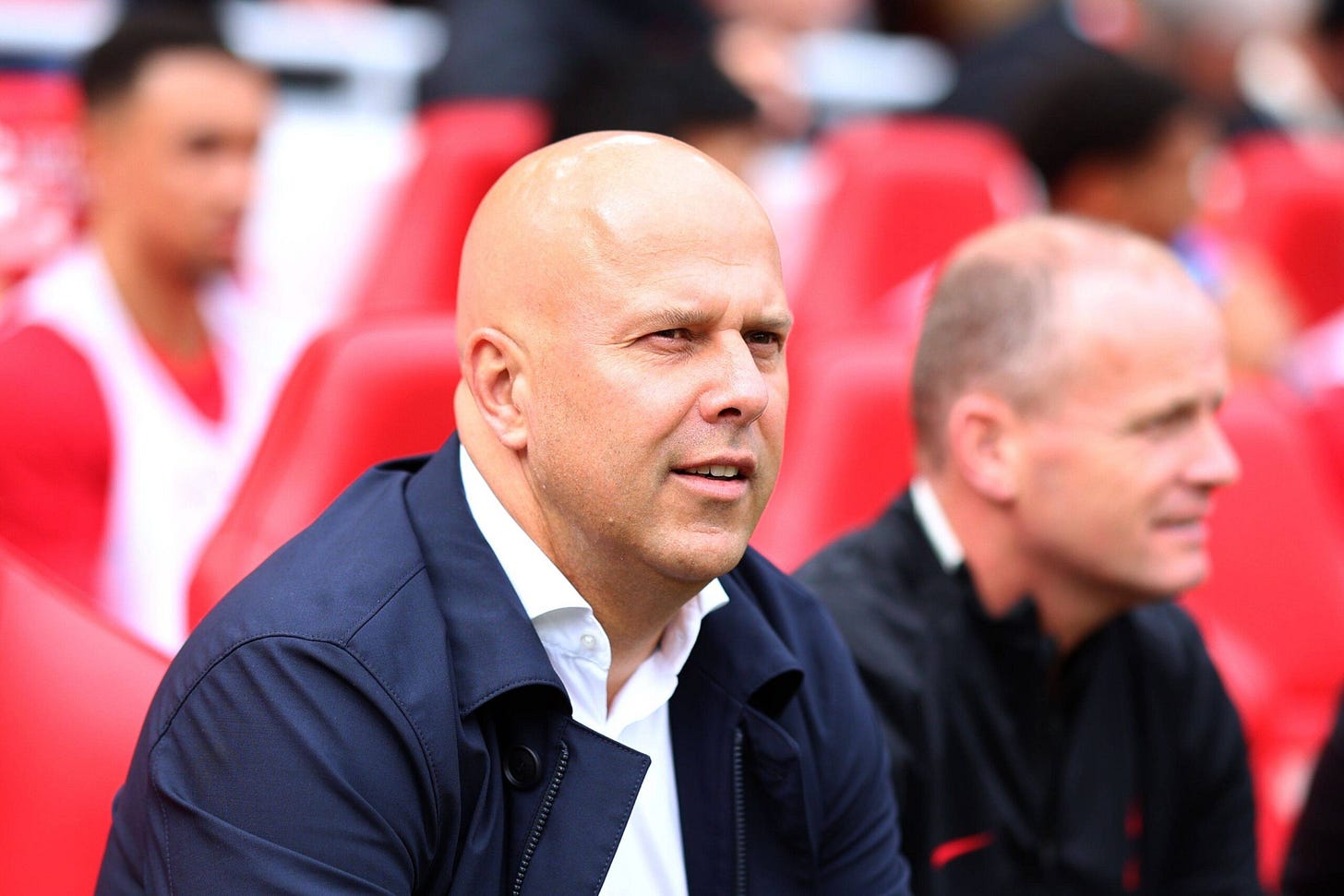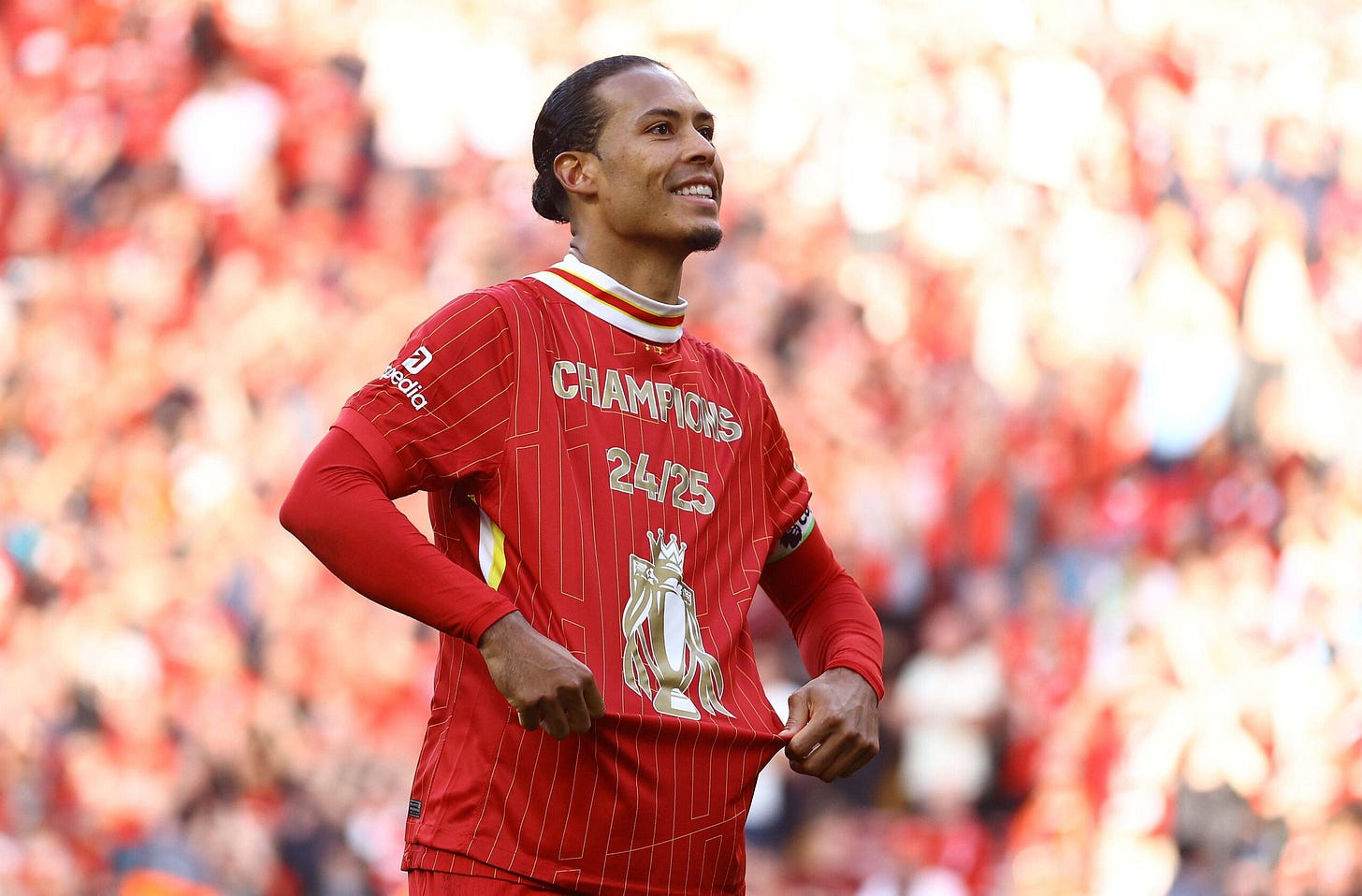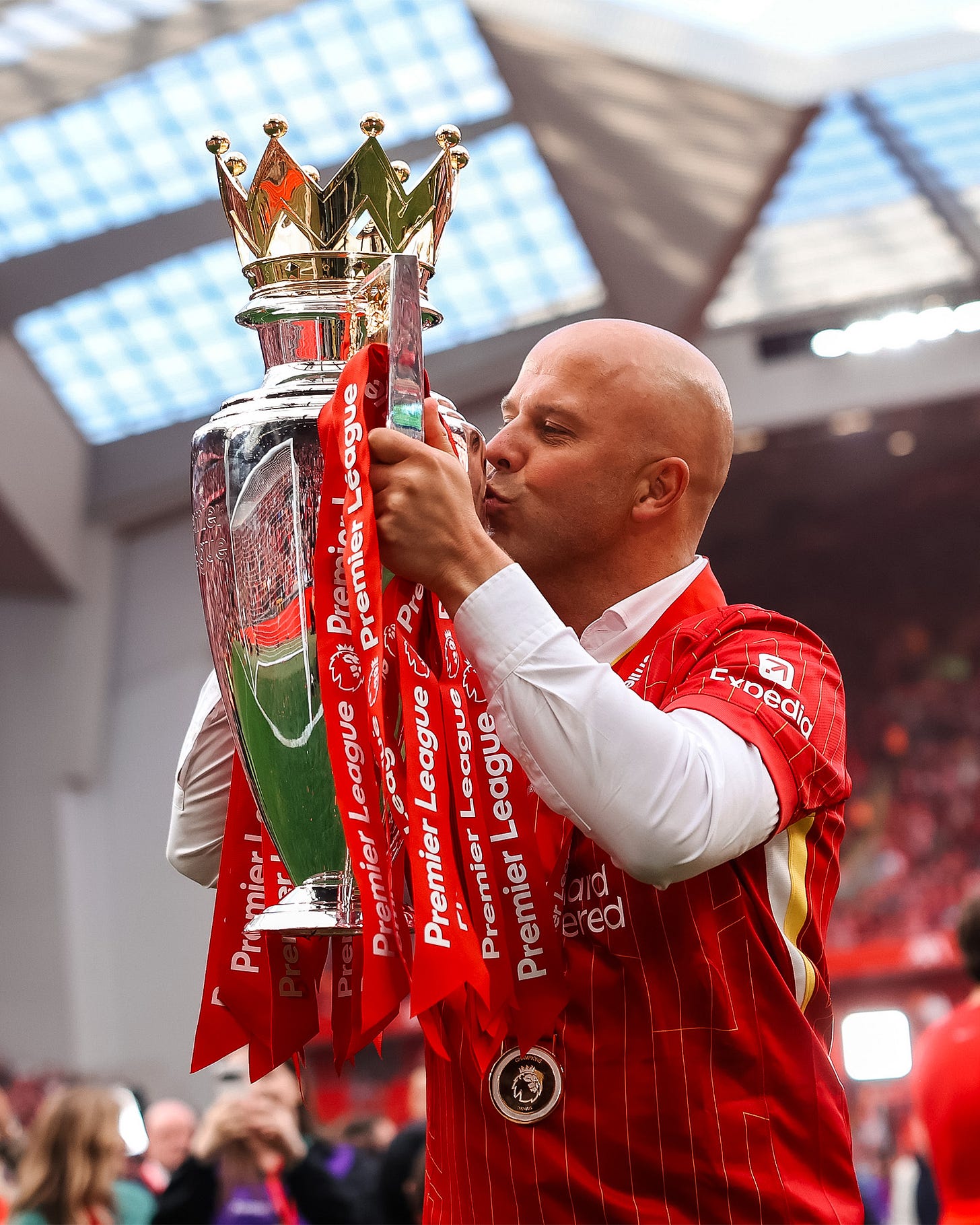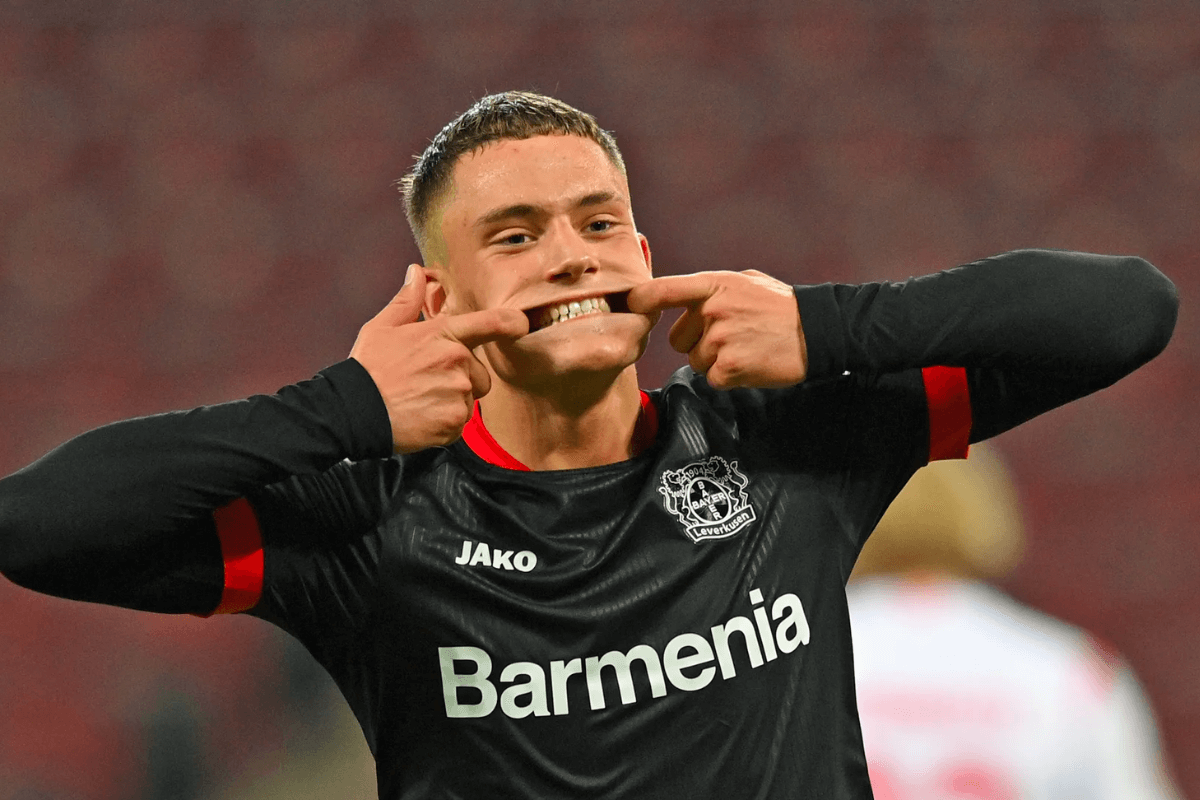Liverpool’s Rebirth: Arne Slot, the Premier League, and the Power of Pragmatism
Changing the Picture Without Burning the Canvas
For all the drama that accompanied Jürgen Klopp’s emotional farewell in May 2024, few could have anticipated the measured, almost surgical precision with which his successor would redefine Liverpool Football Club in the year that followed. Arne Slot, a name uttered with curiosity and caution this time last year, now echoes in the Kop with firm reverence. His achievement is not just in winning the Premier League for the first time of asking, but in how he did so, and what that tells us about modern football and the people who shape it.
Slot did not arrive with a manifesto of revolution. There was no swearing allegiance to gegenpressing or declaring undying love for heavy metal football. Instead, he stepped into the void left by one of the club’s most excellent ever managers with poise and patience, choosing assessment over assertion. He rewrote the Liverpool script in real time, not with high-volume declarations but with intelligent mutability.
Misreading the Premier League as a theatre for the dogmatic is easy. Managers arrive with grand ideas, often fossilised before their boots touch English turf. Slot resisted that. He didn’t sell an idea, he sold adaptability. In that regard, he separated himself from his rivals before a ball was even kicked.
Tactical Nuance Over Tactical Rigidity
There is a curious magic to a team whose greatest strength lies in not being predictable. What marked Liverpool out from their competitors this season was not a singularly brilliant tactic, but the refusal to be shackled by one. In an era where opponents are armed with terabytes of analysis and data-driven insights, Slot maintained the advantage by simply staying fluid.
He read games before they were played. Against aggressive man-to-man presses, he bypassed midfield entirely, going directly into the forwards. In matches where the full backs became the battleground, he dropped the traditional striker entirely, daring rivals to leave Salah or Díaz in 50-yard foot races. Those gambles were not romantic; they were calculated. And they worked.
Using shapes like a 4-2-2-2 in high-pressure fixtures was not a nod to formation fetishism. It was a structural solution to particular problems. It allowed Gravenberch to drop deep or roam wide, gave Szoboszlai room to pierce through the lines, and left opponents second-guessing everything from kick-off. That ambiguity became Liverpool’s stealth weapon. You can't plan for it if you don’t know what’s coming. Neither could they.
Slot’s true genius, though, lies in how he made pragmatism feel poetic. His teams were not dull; they were deliberate. When others collapsed under the weight of their tactical ideologies, Liverpool danced lightly on top of theirs, choosing each step purposefully. That agility is not born of luck or charisma; it is born of clarity. Slot understands that football is a game of opponents, not only of ideals.
Salah’s Enduring Brilliance and Relentless Influence
Within the structural innovation and tactical elasticity, one unshakable constant remained, Mohamed Salah. In a season defined by change, his consistency bordered on the supernatural. This was not a fading version of a once-great footballer; this was the pulse and power of Liverpool’s attack operating at its apex.
Salah was not merely a contributor; he was the axis. While others rotated around systems or struggled with roles, he remained the reference point. Slot, to his credit, did not attempt to reinvent him. He positioned the team so that Salah’s best traits, sharp acceleration, ice-blooded finishing, spatial manipulation, had room to shine.
Whether used as a traditional right winger, a wide forward, or at times as the furthest man up the pitch when the centre-forward was sacrificed, Salah delivered. He terrorised defences with the same merciless regularity he has shown since 2017. But what elevated him this season was not just goals or assists; it was the psychological gravity he carried.
Opponents tilted their entire game plans around him. Double marking him often meant space for others. Ignoring him meant doom. Slot used that magnetism with elegance, frequently drawing defenders into broad areas to pull the strings centrally. Salah, willingly or otherwise, became the decoy and the detonator.
Beyond tactics, there was maturity too. Salah captained the attack with an authority that belied his usually reserved demeanour. He chose his moments to drop deep or drive centrally, knowing when to stretch the game and when to settle it. At times, he was Liverpool’s most experienced midfielder, winger, and finisher rolled into one.
And in the season’s key moments, when the weight of pressure could have smothered the breath from Anfield, it was often Salah who led the charge, his boots speaking where no words were needed. At 32, he looked neither jaded nor peripheral. He looked decisive.
Of course, there will be questions about how long he can maintain this level. But those questions feel misplaced in this context. What he gave this season was not a legacy extension; it was a living, breathing title-winning campaign led from the front. His name will not just be on the honours list; it will be engraved in the memories of those who watched it unfold.
Van Dijk, the Calm at the Core
If Salah was the force that drove Liverpool forward, then Virgil van Dijk was the calm that held everything together at the back. In a season of controlled aggression and measured ambition, Van Dijk’s presence was the platform on which Arne Slot built his vision of success.
There were legitimate doubts 12 months ago. Injuries had taken their toll, pace was no longer a given, and the mystique that once terrified strikers had been worn thin. Yet, nothing short of a defensive renaissance unfolded throughout this title-winning season.
Slot trusted Van Dijk not simply because of his legacy but because of his leadership. He became more than a centre-back; he became the team's emotional regulator. In high-pressure moments, Van Dijk’s measured gesturing, his vocal authority, and his ability to extinguish chaos before it flared proved invaluable.
Tactically, he was repositioned within a slightly more compact system. Rather than having to cover acres of space behind, he was supported by better protection in midfield and clearer roles for his full-backs. Slot recognised that Van Dijk’s most potent quality was not his sprinting, but his reading of the game. He won duels not with aggression but with positioning. He intercepted before others reacted. He dictated the tempo of the defence and made those around him appear more composed.
His work was elegant this season and bordered on philosophical. Young centre-backs watched and learned, knowing that the job was not just to defend but to understand. In a league full of frantic pressing and high defensive lines, Van Dijk became the antidote to panic. His calm was not passive; it was contagious.
When opponents pressed, Liverpool passed through them, and when those passes faltered, Van Dijk was there to clean up. His aerial dominance remained unmatched. But the subtler things—the shoulder checks, the reshuffling of lines, the early signal to a full back to step or drop—quietly built Liverpool’s record over the campaign.
The intangible was just as important. After the Klopp era ended, there was a vacuum of dressing room identity. Van Dijk didn’t fill it with speeches or slogans; he filled it with examples. He re-established standards. From the training ground to the biggest games, he became the gravitational centre around which the team reoriented itself.
That steadiness proved invaluable in tight away games and the more attritional run-in weeks. While rival sides made rotation errors or tactical over-corrections, Van Dijk was the unblinking eye of Liverpool’s defensive storm. His authority remained constant, whether paired with Konaté, Quansah, or Gomez.
As the title often demands a totem figure who embodies the side’s belief, Van Dijk was that figure. Not because he did more than expected, but because he did what he used to do, exactly when it mattered again.
Belief Rekindled From the Stands to the Squad
Supporters don’t often fall in love with pragmatists. They want the drumbeat, the fire, the messianic fist pump. What makes this season all the more remarkable is that Slot didn’t pander to those instincts; he tamed them. He offered trust where others provided volume. And the fans, perhaps slower than they were with Klopp, trusted him back.
This wasn’t a season of soaring emotion. There were a few viral moments and last-gasp winners to narrate in future pub stories. What it was, instead, was a season of collective control. Liverpool didn’t stumble into this title; they stalked it. One intelligent decision at a time.
Within that framework, players flourished. Van Dijk played with the assured serenity of a man no longer asked to save the world. Alexander-Arnold, whose role under Klopp had become symbolically suffocating, found new rhythm and relevance. Even Gakpo, who looked like a man needing a compass, rediscovered his direction. Slot didn’t just manage them; he reintroduced them to themselves.
Darwin Núñez, for all his volatility, became the symbol of Slot’s selective ruthlessness. When the tools no longer matched the task, he was sidelined. There was no fuss, no politics, just clarity. That level of dispassionate focus elevated Slot from a placeholder to a pathfinder.
Outthinking the League, Not Just Outsprinting It
There is no shortage of clever coaches in English football. What separates the good from the exceptional is the ideas they bring and the ideas they abandon. Slot’s ability to evolve while his peers entrenched themselves proved decisive. While Arteta stacked his squad with warriors and battlers and built a system too rigid to flex, Slot adjusted, recalibrated, and stayed ahead.
The defining difference was in perception. Where other managers prepared for Manchester City as the immovable object, Slot recognised that Liverpool had become the irresistible force. While Arsenal blinked and doubled down on control, Slot stepped over the line and took command.
It is not disrespectful to say he understood the league better than anyone else this season. It’s the highest praise. He grasped what he had, saw what others lacked, and aligned those realities into a winning rhythm. City’s excellence is a known quantity. But Liverpool’s leap from uncertainty to dominance in a single year? That’s not execution, that’s orchestration.
Slot knew when to break shape and when to hold it, when to gamble on chaos and when to impose control. That’s not a trait you develop overnight. That’s an intuition carved through years of learning and, crucially, through the freedom to do so. Klopp’s final gift to the club may well have been his timely departure, allowing his successor the space to breathe and rebuild in peace.
Summer Moves and the Future of Slot’s Liverpool
What now? That question may define the summer more than any signing or rumour. Slot has the league and the squad's trust in his pocket. What follows must not be a descent into consolidation but a launch into refinement.
Recruitment will matter, but only as tools for his evolving plan. Liverpool don’t need an identity; they have one. It’s written not in a style of play but in a way of thinking. The club is no longer trying to be City or chasing ghosts of Klopp’s past. It is walking its own line, deliberately and confidently.
Once landed and leaned, targets like Kerkez and Wirtz will enhance what already works. But even without them, the trajectory is clear. This is a Liverpool side built on intelligence, not intensity. And that, is a title-winning formula.
Slot reminded everyone that football remains a game of problems and solutions in a league growing increasingly obsessed with ideas. He solved more of them than anyone else. And in doing so, he reminded Liverpool of who they are when they trust someone to lead with clarity rather than charisma.
This was not a season of miracles. It was a season of knowing, seeing, choosing, and winning.





